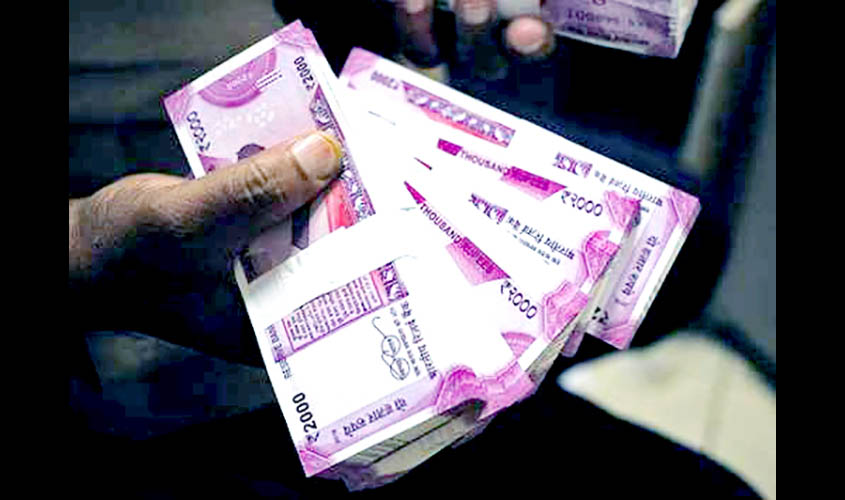That a mountain in labour may produce a mouse has long been a truism of the human existence. India has an array of anti-corruption watchdogs, including the Central Vigilance Commission, the Central Bureau of Investigation, several Lok Ayuktas and the Comptroller & Auditor General of India. The expenditure on this immense machinery has been rising by the day, and yet thus far, the only individuals of any political consequence that have successfully been prosecuted for corruption are Bangaru Laxman, Lalu Prasad Yadav and now P. Chdambaram. Although the latter has been involved in several transactions, the only case against him has been a relatively minor one of bribery. Now that payments largely go through digital channels, data on the same can be revived even in cases where they have been erased. However, hundreds of cases of transparent over-invoicing and under-invoicing of exports and imports remain forgotten. Goods are sold from India to a shadow entity based in a tax haven, which almost immediately resells the same produce to another entity at a much higher price. Clearly the price quoted by the exporter from India is not the value that he or she is getting, for it stands to reason that these shadow entities are beneficially controlled in most cases by the exporter. In much the same way, goods get imported into India at prices much above that charged by the same supplier to other buyers. Air India was involved during the UPA period in a huge transaction for purchase of aircraft that was imported at a much higher price than identical aircraft imported by Go Air and Indigo. Why was this allowed to happen? More to the point, why are those responsible still avoiding accountability? The anti-corruption mechanism in India needs to bestir itself so that the evil of corruption that is so affecting the daily lives of the population get tackled in a manner far more effective than has been the case this far. At the same time as top politicians escape accountability for making millions of dollars through illegalities committed in the course of their duties, the anti-corruption agencies harass honest officials who make a genuine mistake in the performance of their duties. This is affecting the economy of the country, an example being the drying up of working capital to several units as a consequence of bankers fearing the attention and wrath of the CBI and other agencies as a consequence of genuine mistakes made in evaluating the suitability of giving working capital or other loans to struggling units. To a mind trained to believe that human beings are inherently prone to criminal actions, and who know nothing about the business cycle and the risks of doing business (especially in an economy where the rate of growth is half what it was a few years ago), any NPA is a criminal act. Whenever a bank loan goes bad because of business reasons and not for any wrongdoing, those responsible for the sanctioning of such a loan often find themselves subjected to daily inquisitions, initially by the internal watchdog mechanisms of the banks themselves. Rather than go into the intent behind the sanctioning of a loan, these enquiries zero in on “procedural defects”. Given that procedures in India are complex to a degree that would have led to an immediate nervous breakdown by Franz Kafka, it is an easy task to locate some “procedural lapse” or the other as a stick to beat the hapless bank official with. Soon the case gets handed over to the CBI, and the mere fact that a loan has not been repaid becomes reason enough to threaten prosecution or to actually go ahead with incarceration. Small wonder than bank managers are these days chary of sanctioning loans, given the potential penalties for even unintended and unavoidable transformation of the loan into an NPA. Minister for Finance Nirmala Sitaraman has acted creditably in seeking to assuage the fears of bank officials. She has promised them that they can sanction loans without fear of unpleasant consequences, provided such sanctions are bona fide. However, this is where the problem enters. Who is to say which loan is “bona fide” or not? Even those NPAs which result from changes in the business cycle leading to a crash in business are not spared from the relentless quest for affixing blame and imposing punishment. As Minister of Finance, Arun Jaitley too had assured bankers that they were at liberty to act without fear in the granting of loans. Today, several such loans are the subject of enquiries and prosecutions. Sitaraman will need to be more persuasive to ensure that this time around, the words of the FM do not appear to bankers to be an exercise in futility. The CBI Director must ensure that the officers commanded by him gain the ability to distinguish between loans gone bad as a consequence of business vagaries and those loans that were given in the knowledge that they would never be repaid. The travel and other expenses of family members of select individuals in the banking fraternity may need to be examined. This needs to be done unobtrusively rather than overtly wherever possible. If the collateral given as lien to the bank is secure and of sufficient value, even “evergreening” of loans should be permitted so as to keep the enterprise running. Providing working capital is an essential function of banks, and cover for the same needs to be presented to officers who are functioning in a transparent and professional manner.

